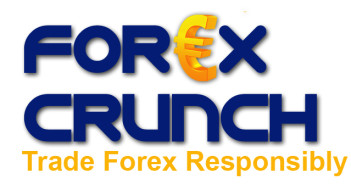The Australian dollar extended the decline against its U.S. counterpart for the fifth straight day and fell versus the euro for the second day as the financial turmoil in the European Union decreased the demand for the higher-yielding assets. The Aussie’s appreciation was also contained by the prospect for the hung parliament after this year’s election and by the prediction that the interest rate won’t rise further. As the investors are attracted to the Australia by the high interest rate, without the rate’s growth the appeal of the currency … “Australian Dollar Goes Further Down Against Greenback”
Month: May 2010
Japanese Yen Rises on Signs of Economic Growth
The Japanese yen gained today after the nation’s gross domestic product grew, signaling about the increasing pace of the country’s economic recovery. The gross domestic product rose at the annual 4.9 percent pace in the first quarter. This showed that the Japan’s economy is gradually recovering, as was confirmed by the Goldman Sachs Group Inc., which said about “solid growth driven by external demand and policy stimulus”. USD/JPY traded near 91.26 … “Japanese Yen Rises on Signs of Economic Growth”
Asian Session – Not so quiet anymore
The Asian session, when Europeans are asleep, is considered a more quiet time in the forex market. But the times they are a-changin – the Asian session is becoming more volatile. Here are the reasons for this change and who can benefit from it. As the Greek crisis continues to be a dominant issue that … “Asian Session – Not so quiet anymore”
Germany’s Ban Caused Traders to Panic, Loonie Down
The Canadian dollar weakened today against some other most traded currencies, including the U.S. dollar, the euro and the Japanese yen, after the decision of the Germany’s leaders to prohibit naked short selling caused the risk sentiment to deteriorate and the investors to shun the riskier assets. In short sales the speculators borrow the assets, betting on the futures decline of the prices, while in naked short sales the borrowing of the actual assets doesn’t occur, allowing unlimited bets. The Germany’s leader … “Germany’s Ban Caused Traders to Panic, Loonie Down”
Hopes for Sensible Actions of EU Governments Make Euro Stronger
The euro strengthened today against other most traded currencies on the hopes that European Union’s governments will take measures to ensure that the common European currency retain its strength. The Germany’s ban of the short selling, which curbed the currency’s strength earlier, wasn’t supported by other European countries, even though Angela Merkel, the Chancellor of Germany, tried to persuade other European leaders that such measures are necessary to preserve … “Hopes for Sensible Actions of EU Governments Make Euro Stronger”
Central Bank May Encourage Depreciation of New Zealand Dollar
The New Zealand dollar dropped today on the concern about the impact of Germany’s ban of short selling on the European economy and after the Governor of the central bank said that the gradual depreciation of the currency is desirable. The statements of the New Zealand’s central bank policy makers caused speculation that the bank isn’t going to increase the interest rate soon and that they may encourage the depreciation of the currency. Alan Bollard, the Governor of the Reserve Bank of New Zealand, … “Central Bank May Encourage Depreciation of New Zealand Dollar”
Polish Zloty Declined After Germany Applied Bans of Short Selling
The Polish zloty was weakened today as the concerns about the outcome of the debt crisis in the European Union increased after Germany banned short selling. Naked short sales for the 10 banks and insurers as well as short sales of the Euro-zone government bonds were banned. The ban caused concern that the investors won’t be able to hedge the European holdings, weakening the currencies in the Central and Eastern Europe. USD/PLN traded at 3.3383 up from its opening … “Polish Zloty Declined After Germany Applied Bans of Short Selling”
Loonie Goes Down on Lower Oil Prices & German Bans
The Canadian dollar fell against its U.S. counterpart and the Japanese yen after Germany banned some kinds of the investments, causing the North American stocks to drop and oil prices to go down. The ban will be applied to naked short selling and naked credit-default swaps of the Euro-zone government bonds at midnight and also to naked short selling in shares of 10 banks and insurers. The ban should last until March 31 of the next year. The reason … “Loonie Goes Down on Lower Oil Prices & German Bans”
Dollar Rises Against Euro & Pound, Falls vs. Yen
The U.S. dollar rose today against the euro and the Great Britain pound on the speculation that the fiscal crisis in the Euro-zone will boost demand for the long-term U.S. financial assets; the U.S. currency dropped against the Japanese yen as the unfavorable reports diminished the optimism for the U.S. economic recovery. The diversification resulted in the depreciation in the previous year, causing concern that the greenback will lose its status of the safe currency. With the debt crisis raging across Europe … “Dollar Rises Against Euro & Pound, Falls vs. Yen”
Rand Strengthens on Prospect for Favorable Outcome of EU Crisis
The South African rand rose today against the U.S. dollar, the second day of gains after the currency tumbled previously, after the EU leaders ensured that the budget cuts won’t bring the European economy down, causing the risk appetite to return; later the rand declined and currently trades near its opening level. The planned budget cuts are required only from the countries with the significant debts such as Portugal and Spain, while … “Rand Strengthens on Prospect for Favorable Outcome of EU Crisis”









